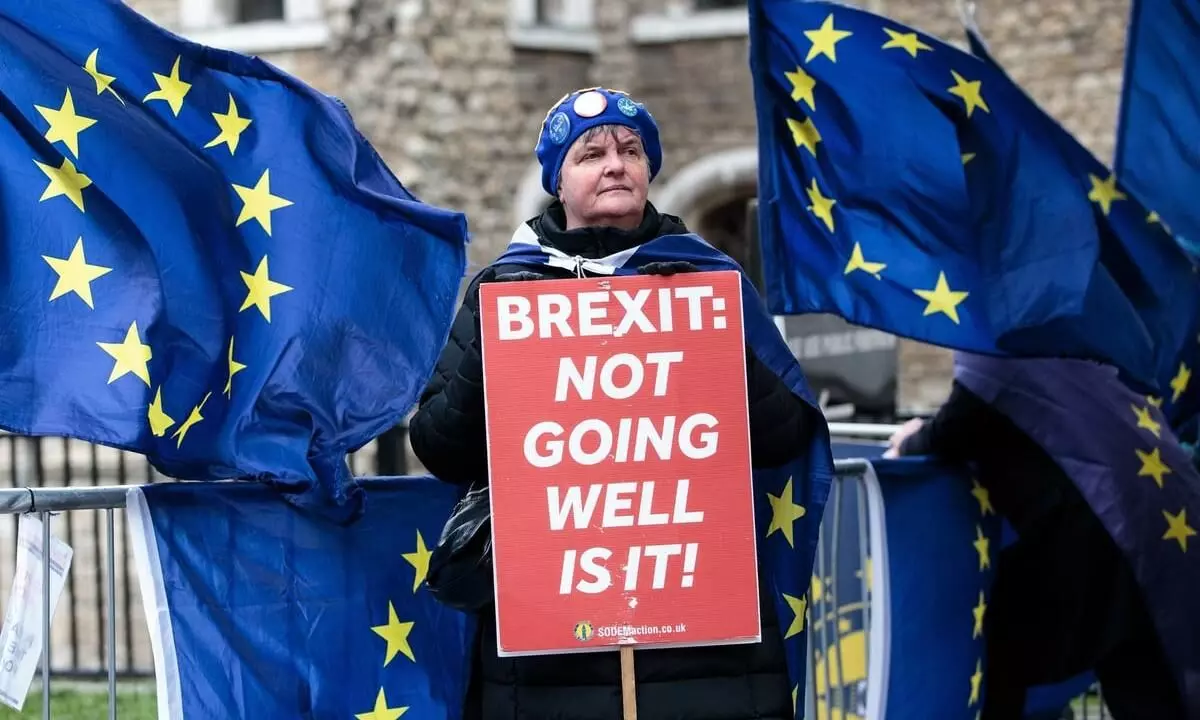
Brexit cost each household in the UK 1000 pounds, claims Bank of England official
text_fieldsLondon: The UK's exit from the European Union, dubbed Brexit, has caused a loss of £1000 per household in the country. A Bank of England policymaker Jonathan Haskel said the move also caused a loss of business investment worth 29 billion pounds.
Speaking to The Overshoot, the official said the private sector investment "stopped in its tracks" in the years following the UK's decision to quit the EU back in 2016. The association formally ended on January 31, 2020. The expert observed that the UK began to fall behind the trend of the previous six years and "suffered much more" compared to other major economies in the aftermath of Brexit.
Brexit created trade barriers for UK businesses and foreign companies that used the country as a European base. It influenced imports and exports as well as labour supply. Experts think it also boosted Britain's inflation problem.
The financial newsletter quoted him saying: "Yes, we suffered much more. A bit of that is that we have this larger financial sector. But I think it really goes back to Brexit. If you look at the period up to 2016, it's true that we had a bigger slowdown in productivity in 2016, but we had a lot of investment. We had a big boom between 2012-ish to 2016. But then investment just plateaued from 2016, and we dropped to the bottom of G7 countries."
The association with Brexit ended over the course of four years and concluded soon after Boris Johns won the election and the Conservatives took charge. New British Prime Minister Rishi Sunak defended Brexit two weeks ago and called it a "huge opportunity". He also claimed that the country made "huge strides in harnessing the freedoms unlocked by Brexit to tackle generational challenges."
Then PM Boris Johnson claimed that the Brexit deal will enable UK businesses to do more business and the country will be free to strike trade deals around the world. He also said the UK will be able to continue to export seamlessly to the EU market and its 450 million consumers. But, in the aftermath of the pandemic, the UK remains the only member of G7 to be left with an economy smaller than it was before the Covid-19 outbreak.
Since the EU referendum, the British pound has lost nearly a fifth of its value. However, some experts think Brexit is not the cause of the UK's struggling economy but it makes problem-solving difficult.






















